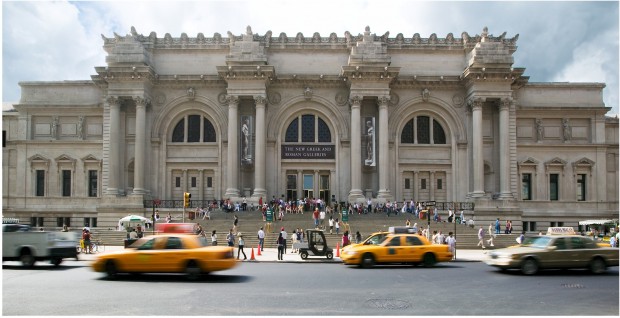Thanks to a sworn affidavit from a former employee of New York’s Metropolitan Museum of Art, a lawsuit against the museum from November 2012 has reentered headlines.
A former Met employee, Gerald Lee Jones, has come forward stating that during his time supervising cashiers (Jones worked at the Met 2007-2011) it was common practice to discourage them from ever revealing to museum-goers that the advertised entry cost is only a suggestion and not mandatory. He goes on to claim that for cashiers “their compensation and their continued employment may largely depend on them not revealing it.” The Metropolitan’s Harold Holzer has denied this particular claim with gusto, asserting that the museum has never taken a cashier’s revenue into account regarding performance review or salary.
Two New Yorkers, Theodore Grunewald and Patricia Nicholson, first raised their lawsuit against the Metropolitan Museum of Art last fall for a deceptive but well-known policy: advertising high admission fees that are, in fact, only a suggested donation. In case you missed it, let me reiterate: despite the advertised $25 admission rate for adults, the Met is only asking for a donation of one cent or more. Irritating? Sure. Dishonest? To an extent, yes. But don’t we all just live with this lack of clarity and leave it to tourists to fall for the museum’s trap?
Cases against the Met’s admission policy seem to be popping up a lot. For instance, as recently as March of this year, a similar suit against the Met was filed by Filip Saska, Tomáš Nadrchal, and Stephen Michelman, two Czech tourists and one New Yorker, respectively. In these cases, the plaintiffs believe they are the victims of fraud, casually duped into spending too much money on a ticket by the greedy museum.
By contrast, if Jones’ account of the Metropolitan’s policies are proven true, the real victims are the cashiers themselves. Every time a museum-goer deftly sidesteps the suggested admission rate, a cashier’s paycheck (and ultimately his or her job) is put on the line. This isn’t like a restaurant where every customer understands that the tip they leave will contribute to the waiter’s meager paycheck; the role of the suggested donation in relation to the Metropolitan’s employees is much less legible.
I find it hard to believe it’s appropriate for a public institution to compensate their employees this way, not to mention keeping it under wraps. While placing the words “suggested donation” in the fine print might aggravate visitors for its surface dishonesty, the real injustice is that museum employees would be risking their paychecks for telling the truth.
Grunewald and Nicholson, like Saska, Nadrchal, and Michelman, are hoping that their suit against the Metropolitan Museum of Art will change the museum’s signs and promotional materials to prevent visitors from being misled or misinformed. But given testimony from Gerald Lee Jones, I personally think signage is the least of our concerns.
In response to the March lawsuit against the Metropolitan, AFC’s Paddy Johnson wrote an article in the L Magazine weighing the pros and cons of the current, albeit deceptive, system of advertising high admission fees, concluding that “the Met isn’t a private corporation seeking to fleece its customers; they’re a public institution looking for additional revenue streams in a climate of steadily decreasing government support.” This remains true, but now it’s worth giving this sentiment an update. While the problem was once the wrongs of small print (which, in fact, is still the problem for those raising suits against the Met) the emerging issue is that there’s information that’s not in any print at all.
And that information is important, because at the heart of both issues is a lack of transparency at the Metropolitan. One can only hope that the hearing will get to bottom of these concerns.
Harold Holzer wrote us and offered following statement: Mr. Jones is dead wrong in his claim that staff evaluations and salary increases were ever based on our cashiers’ ability to extract the highest admission fees from our visitors. In fact, Mr. Jones has confused our daily, businesslike auditing procedures with some ulterior motive he has invented out of whole cloth. In this regard, his memory is faulty and his recollection simply false.



Comments on this entry are closed.